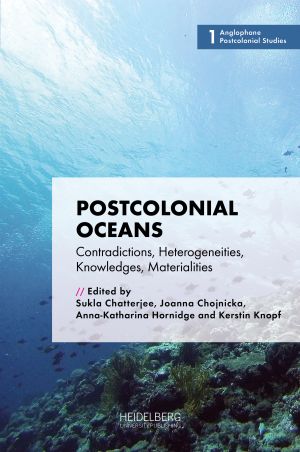Zitationsvorschlag
Lizenz (Kapitel)

Dieses Werk steht unter der Lizenz Creative Commons Namensnennung - Weitergabe unter gleichen Bedingungen 4.0 International.
Identifier (Buch)
Veröffentlicht
Waterscapes of Waste and Wealth
Environmental Pollution in Helon Habila’s “Oil on Water”
ABSTRACT Helon Habila’s 2011 novel, Oil on Water, fictionalizes the socio-political effect of petrol extraction on Nigeria and relies on bodies of water to convey its focus on environmental pollution by constructing through imagery and sentient personification the decay, foulness, and death in the aftermath of oil pollution. Thus, this study draws from Elizabeth DeLoughrey’s examination of Atlantic modernity as a receptacle of wasted lives. In the novel, petroleum modernity’s violence is embodied in the way the bodies of water are burdened with the weight of oil pollution, which has a telling effect on the ecosystem and the lives of the characters. Therefore, the water bodies can be read as signs of the burdens of industrial modernity’s violence enacted on certain bodies and places. The subsisting extractive regime has resulted in a historically violent and destructive inscription on the novel’s waterscapes.
KEYWORDS Helon Habila, Niger Delta, environment, water, oil






